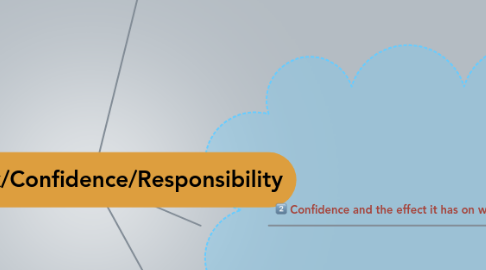
1. Is it better to work in an environment where teamwork is needed, or is it better to work alone?
1.1. Ford, J., O’Hare, D., & Henderson, R. (2013). Putting the “We” Into Teamwork: Effects of Priming Personal or Social Identity on Flight Attendants’ Perceptions of Teamwork and Communication. Human Factors, 55(3), 499-508. doi:10.1177/0018720812465311
1.1.1. This Article by Ford, J., O'Hare, D., and Henderson, R. can be summed up by merely reading the title. This article explains how teamwork has to be a multi-person effort (We) and is carried out through an experiment on flight attendants. The authors talk about an incident in which there was an airline crash which could have been avoided if there was some communication and teamwork involved. Even though this article is about flight attendants, it can be applied to all work situations because communication plays a huge part in working. What I do find very interesting about this article is that it brings about a main point: social identity. Not everyone gets along with each other and this affects communication and teamwork.
1.2. Kalleberg, A. L., Nesheim, T., & Olsen, K. M. (2009). Is Participation Good or Bad for Workers?: Effects of Autonomy, Consultation and Teamwork on Stress Among Workers in Norway. Acta Sociologica (Sage Publications, Ltd.), 52(2), 99-116.
1.2.1. This article written by Kalleberg, Nesheim, and Olsen is very interesting because it contrasts what Ford, O'Hare, and Henderson talked about it their article. This article focuses on how teamwork in fact causes stress in the workplace and that autonomy, or working alone, reduces stress in the workplace. I have found this article very interesting because it does not seem right to only support teamwork because everyone has their own opinion.
1.3. Eisele, P. (2011). Effects of individual planning prior to teamwork on generation of ideas and goals. Baltic Journal Of Psychology, 12(1), 46-58.
1.3.1. Eisele uses an experiment in this article like Ford, O'Hare and Henderson to support the fact that teamwork does affect the generation of ideas and goals which was a main point of my essay on learning from each other and coming up with new ideas and things that could be done better.
2. Confidence and the effect it has on work
2.1. Mohamed, Z. Z., Newton, J. M., & McKenna, L. L. (2014). Belongingness in the workplace: a study of Malaysian nurses' experiences. International Nursing Review, 61(1), 124-130. doi:10.1111/inr.12078
2.1.1. Mohamed, Newton, and McKenna explain in this article how not belonging creates stress, anxiety, and a lack of esteem or confidence through a Malaysians nurses' experiences. This article can help answer the question of how do you achieve confidence because it explains that we need a sense of belongingness so that we can "fit-in" with others. Once we fit-in with others and feel like we belong to that group we start to make friends and begin to open up and get personal thus achieving self-confidence.
2.2. Keke, W., Chenwei, L., & Johnson, D. E. (2011). ROLE OF SELF-ESTEEM IN THE RELATIONSHIP BETWEEN STRESS AND INGRATIATION. Psychological Reports, 108(1), 239-251. doi:10.2466/07.09.20.PR0.108.1.239-251
2.2.1. Keke, Chenwei, and Johnson, like the article above, explain how having low self-esteem and low self confidence creates stress in the workplace. This article can help answer the question of what affect does low self confidence have on work because it gives detailed examples of what happens when we feel like we can't do certain things and we begin to question ourselves. This brings on stress which affects how you work and productivity of work.
3. How does working teach responsibility?
3.1. Teens learn responsibility through work. (2013, April 1). Retrieved October 15, 2014, from http://www.durhamvoice.org/working-teens-learn-responsibility-through-work/
3.1.1. This article written by a user named Jock explains how kids who get a part-time jobs are taught responsibility. The work is not only only rewarding because they receive their own money and they don't have to ask their parents for the money but it also teaches them valuable life long working skills. Having a job puts more pressure on a kid such as what is expected, proper work ethics, and also money management. A job also keeps kids out of trouble because they have obligations now. After having a job you start to see some of the responsibilities that come with it such as helping to pay expenses, being on time, and also having better manners.
3.2. Zagata, D. (n.d.). A Job Can Help Your Teen Learn Responsibility. Retrieved October 15, 2014, from http://articles.familylobby.com/275-a-job-can-help-your-teen-learn-responsibility.htm
3.2.1. Darlene's article is very well written and sounds as though it comes from experience. She along with Jock in the article above write along basically the same lines. She begins to talk about all the normal things a regular teen would do such spend their time playing video games, on the internet, hanging out with friends, and always asking parents for money. By getting a job a teenager becomes accomplished and can buy/pay for their own things. This also gives the teenager a look into what adulthood is like. The examples she gives about how kids view adulthood are very on the money, as said before which probably comes from experience.
